“A master of the art of collaboration who convinced talented physicists and national and international agencies that a multi-million dollar science project two kilometers under the earth in a Sudbury mineshaft would make it possible to solve The Solar Neutrino Problem.”
These are the words used to describe the remarkable academic accomplishments of George Ewan, DSc’05, when he received his honorary degree from Queen’s University. They also describe the important role that Dr. Ewan’s powerful communication skills played in helping him achieve his research goals.
Now an emeritus professor in the Department of Physics, Engineering Physics and Astronomy, Dr. Ewan focused on nuclear physics and sub-atomic research, particularly the solar neutrino problem – too few neutrinos recorded reaching the Earth from the centre of the Sun.
Dr. Ewan, along with Dr. Herb Chen of University of California, Irvine and other fellow physicists from Canada, the US and the UK, founded the Sudbury Neutrino Observatory (SNO), a subterranean neutrino observation facility located in a Sudbury nickel mine. Only after considerable meetings with politicians, industry leaders, and academic administrators from across North America, as well as plenty of media interviews, were Dr. Ewan and his collaborators able to acquire the funding, resources and support they needed to pursue their remarkable research.
In 2015, the years of research at the Sudbury Neutrino Observatory (SNO) resulted in a Nobel Prize for Dr. Arthur McDonald and his collaborators, including Dr. Ewan, in recognition of their ground- breaking experiments which demonstrated that neutrinos change identities.
When Dr. McDonald accepted the Nobel Prize on behalf of the SNO team in 2015, Dr. Ewan was in Stockholm with him.
 Dr. George Ewan (front middle) with some of his SNO collaborators at the Nobel Prize ceremony in Stockholm in 2015.
Dr. George Ewan (front middle) with some of his SNO collaborators at the Nobel Prize ceremony in Stockholm in 2015.
With his work recognized at the highest level, the 90-year-old Dr. Ewan now pushes ahead with a goal of influencing the next generation of scientists here at Queen’s, remarking that “it is vital that we scientists make our work accessible to the general public.” His wife, Maureen, agrees with him, saying “his work is so remote from what most people would find comprehensible.” Executive communication skills are vital to successful research. As he puts it, scientists have so much of value to share with the world. “As a rule, scientists don’t inform the educated public, but there are people who work on exciting experiments who could give very good talks. My dream is to have them come to Queen’s to give lectures on the state of their experiments and especially about their results, and to do it in a way that people without PhDs can understand.”
This is why Dr. Ewan and his wife have decided to donate $100,000 to Queen’s to create The George and Maureen Ewan Lecture Series, which will support seminar and lecture programs designed to increase scientific discourse and culture within the Particle Astrophysics community at Queen’s University.
Dr. Tony Noble, a former SNOLAB director and the current director of the Canadian Particle Astrophysics Research Centre, shares Dr. Ewan’s dream and sees great benefit in it – especially for Queen’s students.
“George wants to ratchet up the level of discourse at Queen’s and entice top scientists from around the world to come here and share their ideas and results,” he says. “To expose our students to this kind of thinking would be inspirational for them. It will open them up to new possibilities.”
Dr. Ewan’s gift, which will use Queen’s new spend-down option, will give the department access to $10,000 a year until the fund is depleted. As Dr. Noble explains, a $10,000 annual budget will make it possible for the department to look farther afield for guest lecturers and host them for a longer stay. “The idea is to have the guest lecturers stay for a while and spend some quality time with the students, interacting with them and working with them in the labs,” he says.
The lecture series is only the latest way in which the Ewans have chosen to support Queen’s. In 2014, the couple created two funds in support of the Ban Righ Centre, where Mrs. Ewan worked from 1976 to 1992. Maureen’s Room, a cozy study space in the Ban Righ Centre is named after Mrs. Ewan and can be found in what was once her office. In honour of the great work done by the centre, the couple established the Maureen Ewan Ban Righ Bursary as well as the Maureen Ewan Ban Righ Endowment Fund, which is used to provide ongoing support for the programs and services overseen by the Ban Righ Foundation. Both of these funds will ensure that women who have experienced an interruption in their formal education can return to their studies in order to achieve their personal academic goals.
The Ewans have made their gift commitments a reflection of their lives at Queen’s. If you are considering making your gift to Queen’s a meaningful reflection of your own life, please get in touch with our Gift Planning team. We can help you create your legacy.


